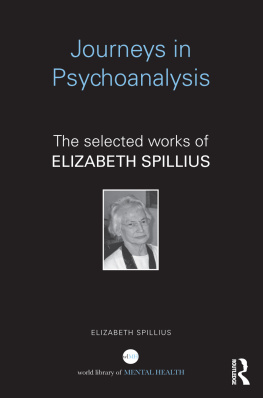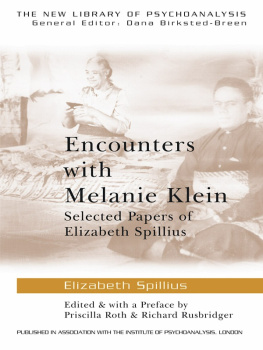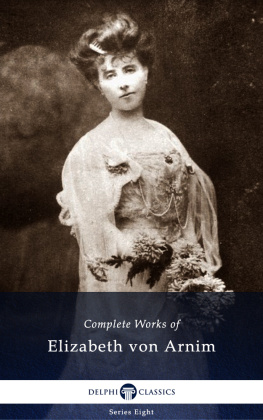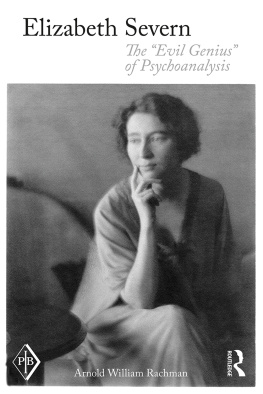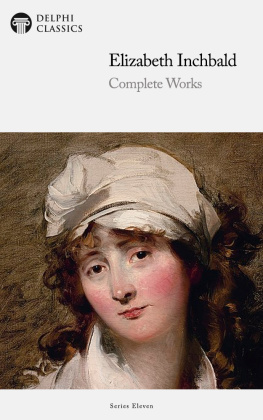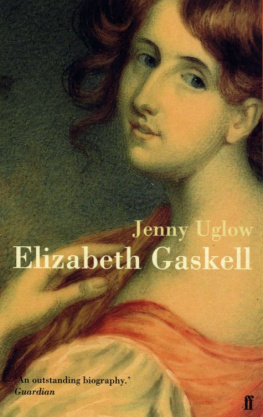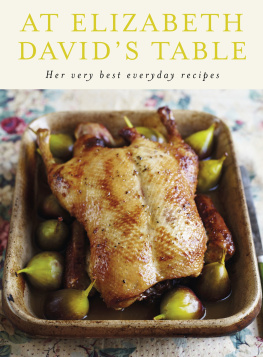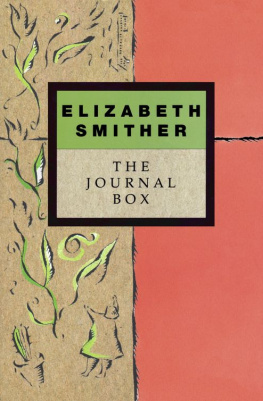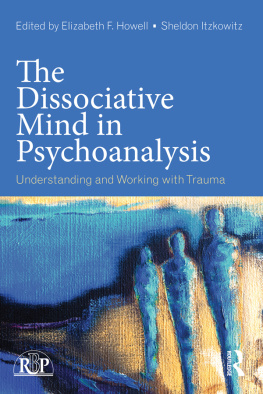
Journeys in Psychoanalysis
Spanning six decades, this collection, Journeys in Psychoanalysis: The selected works of Elizabeth Spillius, traces the arc of her career from anthropology and entering psychoanalysis almost by accident, to becoming one of her generations leading scholars of Melanie Klein.
Born in 1924 in Ontario, Canada, Elizabeth arrived at the London School of Economics for postgraduate studies in the 1950s and soon embarked on a groundbreaking study of family life in the East End of London that produced a PhD and her first book, Family and Social Network, under her maiden name Elizabeth Bott. Published by the Tavistock Institute in 1957, it remains one of the most influential works published on the sociology of the family.
These papers are a testament to the luminous intellect and understated compassion that Elizabeth has always brought to her work. They vividly map not just the evolution of Elizabeths career but the development of Melanie Kleins thought, often drawing in compelling fashion on the writers own experiences with her patients. Each is written with the clarity and concision that makes difficult concepts eminently comprehensible to psychoanalysts, psychoanalytic psychotherapists and laymen alike.
Elizabeth Spillius studied general psychology at the University of Toronto (1945), social anthropology at the University of Chicago, the London School of Economics and the Tavistock Institute of Human Relations (19451957) and psychoanalysis at the Institute of Psychoanalysis in London (1956 to the present). She is esteemed for her clinical work and her teaching, and has published a wealth of books and papers. Her work remains profoundly influential on how psychoanalysts of today approach post-Kleinian thinking. Among her long list of achievements, Elizabeth was general editor of the Routledge series, the New Library of Psychoanalysis, from 1988 to 1998, and was editor of Melanie Klein Today, Volumes 1 and 2. In 2010 she was made a Distinguished Fellow of the British Psychoanalytical Society.
Journeys in Psychoanalysis
The selected works of Elizabeth Spillius
Elizabeth Spillius

First published 2015
by Routledge
27 Church Road, Hove, East Sussex, BN3 2FA
and by Routledge
711 Third Avenue, New York, NY 10017
Routledge is an imprint of the Taylor & Francis Group, an informa business
2015 Elizabeth Spillius
The right of Elizabeth Spillius to be identified as author of this work has been asserted by her in accordance with sections 77 and 78 of the Copyright, Designs and Patents Act 1988.
All rights reserved. No part of this book may be reprinted or reproduced or utilised in any form or by any electronic, mechanical, or other means, now known or hereafter invented, including photocopying and recording, or in any information storage or retrieval system, without permission in writing from the publishers.
Trademark notice: Product or corporate names may be trademarks or registered trademarks, and are used only for identification and explanation without intent to infringe.
British Library Cataloguing in Publication Data
A catalogue record for this book is available from the British Library
Library of Congress Cataloging in Publication Data
Spillius, Elizabeth Bott, 1924- , author.
[Works. Selections]
Journeys in psychoanalysis : the selected works of Elizabeth Spillius / Elizabeth Spillius.
p. ; cm. -- (World library of mental health)
Includes bibliographical references.
I. Title. II. Series: World library of mental health series.
[DNLM: 1. Klein, Melanie. 2. Psychoanalysis--Collected Works. 3. Psychoanalytic Theory--Collected Works. WM 460]
RC504
616.8917--dc23
2014038112
ISBN: 978-0-415-83517-6 (hbk)
ISBN: 978-1-315-72029-6 (ebk)
Typeset in Sabon
by Saxon Graphics Ltd, Derby
CONTENTS
People remind me occasionally that I come from a Canadian academic family, which is true but slightly misleading. My father, Edward Alexander Bott, came from a very poor family and when he finished high school (Canadian for secondary school) he worked hard for four years and saved all the money he could before applying to university although whether to study psychology or philosophy, Im not sure.
My mothers family was rather different. Her father was the headmaster of a secondary school in a small Ontario town and a man whom everyone loved, myself included. My grandmother was intensely proper, very religious and very keen on looking for sin, especially in me (I heard that my father eventually told her to stop this). She did not let my mother go to university she thought the institution was immoral and so my mother spent some years touring small Ontario towns teaching women how to de-bone chickens before cooking them.
Eventually my mother persuaded her father to allow her to go to university, where she met my father. In the final examinations she stood first and won the Governor Generals gold medal and my father stood second. He didnt seem to mind, I was told.
I was the youngest of three girls, and the only one who enjoyed school, probably because I did quite well. By the time I was ready to go to the University of Toronto the war had begun, and there were more young men at university than usual. I think this was because one did not have to join the army if one went to university. Most of them especially Erving Goffman, who was in my year were very intelligent and left wing.
I learned a lot from Erving and his friends at university. We were taught by a clever young man from Chicago called Raymond Birdwhistell and I felt I was being rescued at last from psychology my subject. I thought sociology was probably just as bad. Both seemed to be based on questionnaires Are you happy? Answer 15. Unhappy? Sometimes unhappy? etc. I thought it was just silly. Erving and his friends got me started on Durkheim, Marx, Radcliffe-Brown and Malinowski.
At the end of university I won a scholarship and went with Erving to the University of Chicago. He went to the Sociology Department, I went to something called Human Development, which threatened to be as bad as the questionnaires. Then more or less by accident I found myself getting to know a working-class family and writing about them for Allison Davis, who was completing his PhD and was to become an important figure in psychology and anthropology.
This was a man I liked a lot. He knew a great deal about how people lived and thought, and he encouraged me to write. I said fine, but next time I didnt want to study a family without their knowing it I felt it was all wrong, doing it secretly, and he agreed, much to my relief.
By this time I had decided that I wanted to study anthropology, but found that most of the anthropology professors were boring and unimaginative how judgemental I was! But there was one I really liked, and he took me aside for a quiet bit of advice, saying that I was never going to like American anthropology and so I should give it up and go to England where everybody thought the way I did. (I didnt believe that bit, of course.) But I wrote a letter to the head of the Anthropology Department at the London School of Economics and asked if they had any scholarships etc. that I could apply for. After a very long time he wrote back to me saying there were no scholarships, but he could offer me a low-paid job. I was thrilled. So Erving and I set off, me for London and Erving for the Shetland Islands, where he was going to do field work for his next book after
Next page
